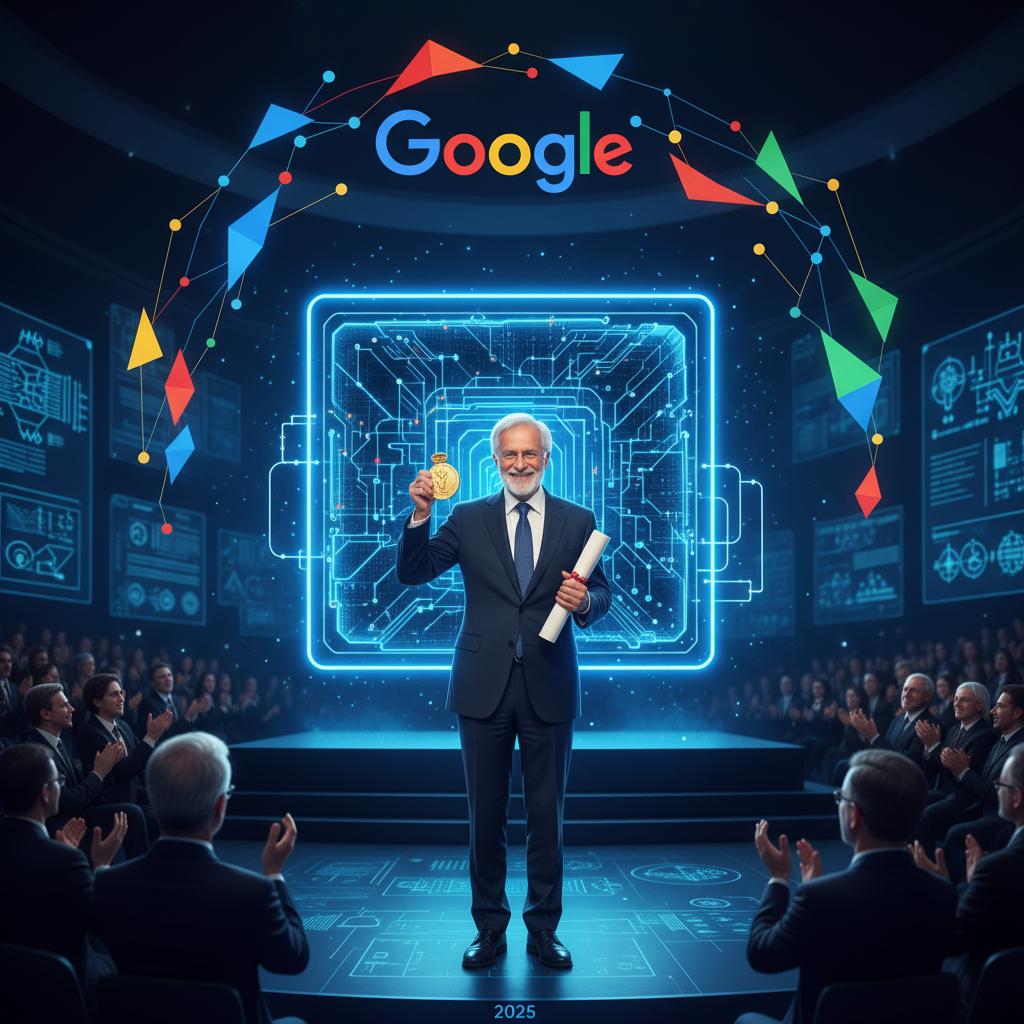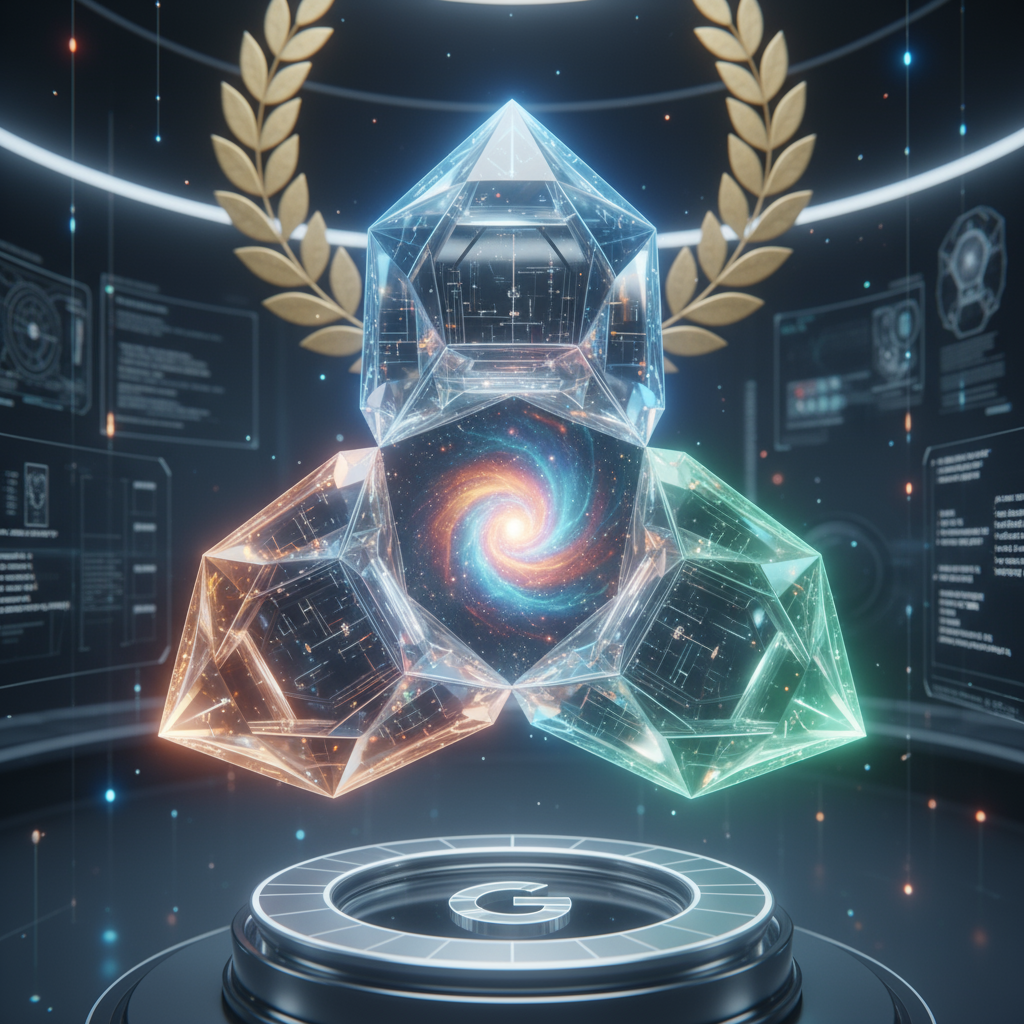Google’s Quantum Maestro: Michel Devoret Bags the 2025 Nobel Prize in Physics for Groundbreaking Work

The hallowed halls of the Royal Swedish Academy of Sciences have once again shimmered with the brilliance of innovation, and this year, a familiar name echoes through its prestigious corridors: Google. In a monumental announcement, Michel Devoret, Google’s Chief Scientist of Quantum Hardware, has been awarded the 2025 Nobel Prize in Physics. He shares this immense honor with former Google employee John Martinis and the distinguished University of California, Berkeley professor John Clarke. This marks a remarkable second consecutive year that current or former Google trailblazers have been recognized for their profound impact on the world of physics, cementing the tech giant’s pivotal role in pushing the boundaries of scientific discovery.
The reverberations of this award extend far beyond the research labs, signaling a new era of understanding and harnessing the most fundamental laws of the universe. Devoret’s contributions, alongside those of his esteemed co-recipients, have been instrumental in laying the groundwork for technologies that were once confined to the realms of science fiction. Join us as we delve into the significance of this groundbreaking achievement and explore the profound implications of their work.
Unveiling the Quantum Triad: A Legacy of Innovation

The 2025 Nobel Prize in Physics recognizes the transformative work of Michel Devoret, John Martinis, and John Clarke in the field of superconductivity and quantum computing. Their individual and collaborative efforts have been crucial in transitioning quantum phenomena from theoretical concepts to tangible, controllable elements. Specifically, their research has focused on manipulating superconducting circuits to create and control qubits, the fundamental building blocks of quantum computers.
Devoret, a pioneering figure, has been at the forefront of developing “superconducting qubits.” These microscopic structures, when cooled to extremely low temperatures, exhibit quantum properties, allowing them to exist in multiple states simultaneously – a concept known as superposition. His meticulous work in designing and understanding these intricate quantum systems has been foundational, providing the essential blueprints for robust quantum processing units.
John Martinis, leveraging his extensive experience from his tenure at Google, played a critical role in scaling up these superconducting qubits and demonstrating their practical application. His leadership in building complex quantum processors, including those that achieved “quantum supremacy,” provided undeniable evidence of the potential of this technology. John Clarke, from the University of California, Berkeley, brought his expertise in sensitive superconducting quantum interference devices (SQUIDs), which are vital for precisely measuring the delicate quantum states of these qubits.
From Theory to Tangibility: The Impact of Superconducting Qubits
The significance of Devoret, Martinis, and Clarke’s work lies in its ability to bridge the gap between abstract quantum theory and practical technological implementation. Before their breakthroughs, the idea of directly manipulating quantum states for computation seemed incredibly distant. Their research has provided the experimental techniques and theoretical understanding necessary to engineer quantum systems that can perform calculations far beyond the capabilities of even the most powerful classical supercomputers.
Consider the challenge of quantum coherence. Qubits are incredibly fragile and can easily lose their quantum properties due to interactions with their environment. Devoret’s ingenious designs and Martinis’s meticulous engineering have focused on developing techniques to maintain qubit coherence for longer periods, a critical step towards building fault-tolerant quantum computers. This involves isolating qubits from external noise and developing error correction mechanisms, key areas where their contributions have been indispensable.
Furthermore, their work has not just been about building individual qubits but about understanding how to make them communicate and interact in a controlled manner. This ability to create “entangled” qubits, where the state of one is inextricably linked to the state of another, is fundamental to many quantum algorithms. Their research has provided the experimental verification and theoretical models to achieve and maintain this delicate quantum entanglement, paving the way for complex quantum computations.
Google’s Quantum Leap: A Continuing Legacy
The fact that Google has now seen its employees or former employees awarded the Nobel Prize in Physics for two consecutive years speaks volumes about the company’s commitment to fundamental scientific research. In 2024, a former Google vice president was recognized with the Nobel Prize in Physics, and DeepMind researchers were also honored, highlighting Google’s broad impact across various scientific domains, particularly in AI and machine learning.
Michel Devoret’s current role as Google’s Chief Scientist of Quantum Hardware underscores the company’s strategic investment in quantum computing. This isn’t just about developing faster computers; it’s about pioneering a new paradigm of computation with the potential to revolutionize fields like medicine, materials science, cryptography, and artificial intelligence. Google’s dedication to attracting and supporting top scientific talent like Devoret is clearly yielding extraordinary dividends, not just for the company but for the entire scientific community.
The collaborative environment fostered at Google, where theoretical physicists, experimentalists, and engineers work side-by-side, has been crucial for these breakthroughs. This integrated approach, combining deep theoretical understanding with practical implementation challenges, is precisely what’s needed to unlock the full potential of quantum technologies. The Nobel Committee’s recognition of Devoret further validates Google’s unwavering pursuit of the quantum frontier.
A Future Defined by Quantum Possibilities
The 2025 Nobel Prize in Physics awarded to Michel Devoret, John Martinis, and John Clarke marks a pivotal moment in human scientific endeavor. Their tireless dedication and groundbreaking advancements in controlling the elusive world of quantum mechanics have not only deepened our understanding of the universe but have also laid the foundation for technologies that promise to reshape our future. From designing bespoke drug molecules to discovering novel materials and breaking current cryptographic codes, the applications of quantum computing, built on the bedrock of their discoveries, are vast and transformative.
As we celebrate this remarkable achievement, we are reminded of the power of intellectual curiosity, relentless experimentation, and collaborative spirit. Michel Devoret, alongside his distinguished co-recipients, stands as a testament to the pursuit of knowledge, pushing the boundaries of what is possible and inspiring a new generation of scientists to explore the quantum fabric of reality. The age of quantum computing is no longer a distant dream; thanks to these pioneering minds, it is rapidly becoming our tangible reality.

